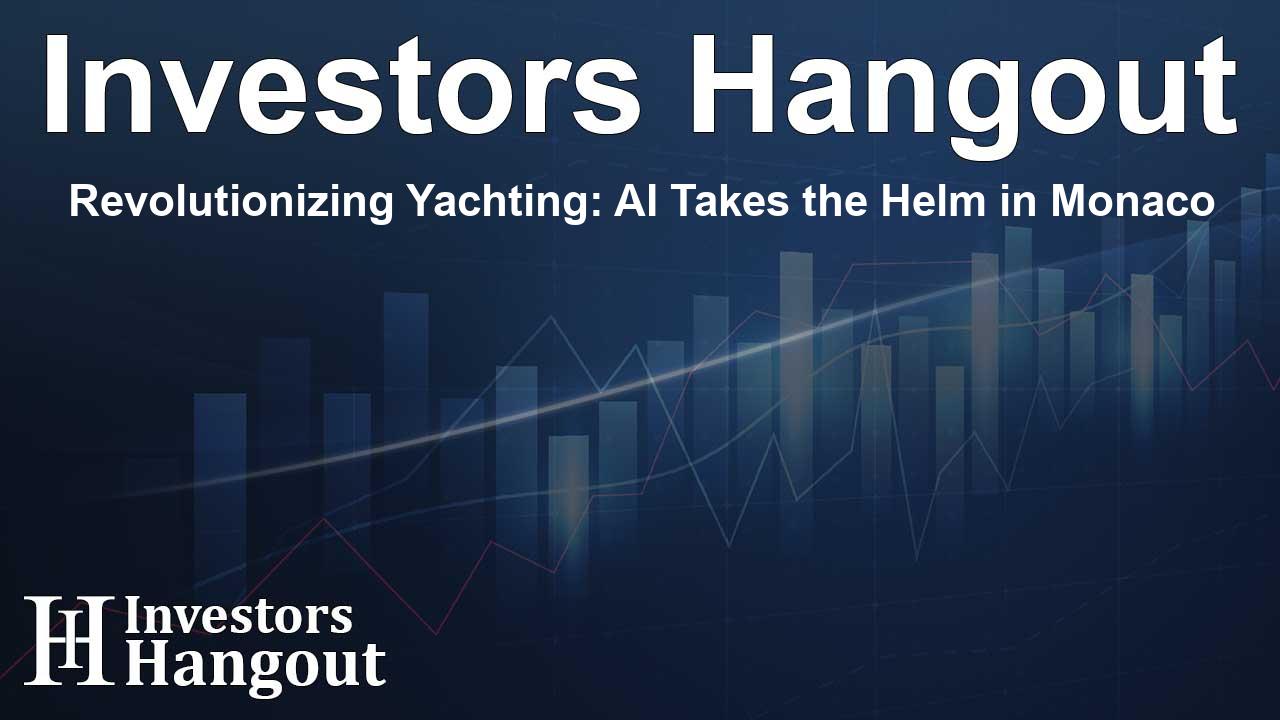Revolutionizing Yachting: AI Takes the Helm in Monaco

The Monaco Energy Boat Challenge: A New Dawn for Yachting
The Monaco Energy Boat Challenge has embarked on an exciting new chapter, bringing together numerous teams, nations, and students to explore innovative solutions in yachting. This prestigious event, hosted by the Yacht Club de Monaco, takes place over five thrilling days, emphasizing advancements in sustainable maritime technologies. This year, the challenge has attracted forty-two teams from twenty nations, including participation from 29 universities, involving over a thousand eager students who are passionate about the future of boating.
Innovations on the Horizon
Jeremie Lagarrigue, president of the Jury Committee, highlighted the significant growth of this year’s event. "With more participants and new categories, we are witnessing a remarkable leap forward. The emergence of the AI Class is particularly noteworthy. Not only does it embrace artificial intelligence, but it also includes boats demonstrating advanced drone-like functionalities, such as self-docking capabilities and autonomous mission execution. This step not only enhances maritime efficiency but also encourages an innovative spirit across the industry,” he elaborated.
Exploring Categories of Competition
The Monaco Energy Boat Challenge categorizes competing projects into four primary classes aimed at exploring and showcasing future technologies in yachting. The AI Class features boats navigated by artificial intelligence, while the Energy Class evaluates cutting-edge technologies integrated into standardized boat hulls. The SeaLab Class serves as a floating laboratory focused on pioneering hydrogen technologies, and the Open Sea Class presents CE-certified zero-emission prototypes.
Embracing Electric and Hydrogen Solutions
This year’s challenge is committed to sustainability, highlighted by the impressive number of projects utilizing alternative energy sources. Out of the competing teams, 30 boats are powered by electricity, while 12 boats utilize hydrogen, and 12 prototypes are designed with foiling capabilities. This shift towards clean energy solutions illustrates a growing commitment within the maritime industry to reduce its environmental footprint.
AI Class: The Future of Autonomous Navigation
In a groundbreaking debut, the AI Class showcases some of the latest innovations in autonomous boating. The Polish team, AGH Solar Boat, is at the forefront by integrating LiDAR, 3D cameras, and sophisticated AI algorithms running on the Jetson Orion computer. Another standout, the BME Solar Boat Team from Hungary, has developed a lightweight solar electric racing boat optimized for autonomous navigation. Maria Marcello, a member of the AI Technical Committee, emphasized that the AI class's primary goal is to foster the development of boats capable of executing autonomous tasks using advanced technology and AI techniques.
A Look at Emerging Technologies
Among the featured innovations, the Sambuk Racing team from Qatar University has made its mark by introducing solid-state lithium battery technology, marking a significant milestone in the competition's history. Meanwhile, Heriot-Watt University from Scotland has brought forth an integrated solid-state hydrogen storage system, known for its safety and compactness. Plus Zero will also test an internal combustion engine powered by hydrogen, further highlighting the versatility and potential of alternative fuel sources in boating.
Building a Sustainable Future
The core objective of the Monaco Energy Boat Challenge extends beyond competition; it explores and promotes sustainable practices in yachting. By bridging the gap between research and the boating industry, this initiative encourages collaboration among teams and industry leaders to rethink maritime mobility. The integration of artificial intelligence solutions not only enhances operational efficiency but also sets a precedent for future innovations.
Frequently Asked Questions
What is the Monaco Energy Boat Challenge?
The Monaco Energy Boat Challenge is an event that showcases innovative maritime technologies and sustainable solutions in yachting, attracting teams globally to compete over several days.
How are the teams structured in this challenge?
Teams competing in the challenge are divided into four categories, including AI Class, Energy Class, SeaLab Class, and Open Sea Class, each focusing on different aspects of yachting technology.
What role does AI play in this year's challenge?
AI is being introduced for the first time in the challenge, with a specific focus on developing autonomous boats capable of completing various tasks independently.
What types of energy technologies are featured this year?
Competitors are utilizing a range of energy sources, including electric power and hydrogen technologies, emphasizing the industry's shift towards sustainability.
How does this event contribute to maritime mobility?
The challenge promotes collaboration between academic research and the boating industry, encouraging innovation that redefines maritime mobility in an eco-friendly manner.
About The Author
Contact Evelyn Baker privately here. Or send an email with ATTN: Evelyn Baker as the subject to contact@investorshangout.com.
About Investors Hangout
Investors Hangout is a leading online stock forum for financial discussion and learning, offering a wide range of free tools and resources. It draws in traders of all levels, who exchange market knowledge, investigate trading tactics, and keep an eye on industry developments in real time. Featuring financial articles, stock message boards, quotes, charts, company profiles, and live news updates. Through cooperative learning and a wealth of informational resources, it helps users from novices creating their first portfolios to experts honing their techniques. Join Investors Hangout today: https://investorshangout.com/
The content of this article is based on factual, publicly available information and does not represent legal, financial, or investment advice. Investors Hangout does not offer financial advice, and the author is not a licensed financial advisor. Consult a qualified advisor before making any financial or investment decisions based on this article. This article should not be considered advice to purchase, sell, or hold any securities or other investments. If any of the material provided here is inaccurate, please contact us for corrections.
